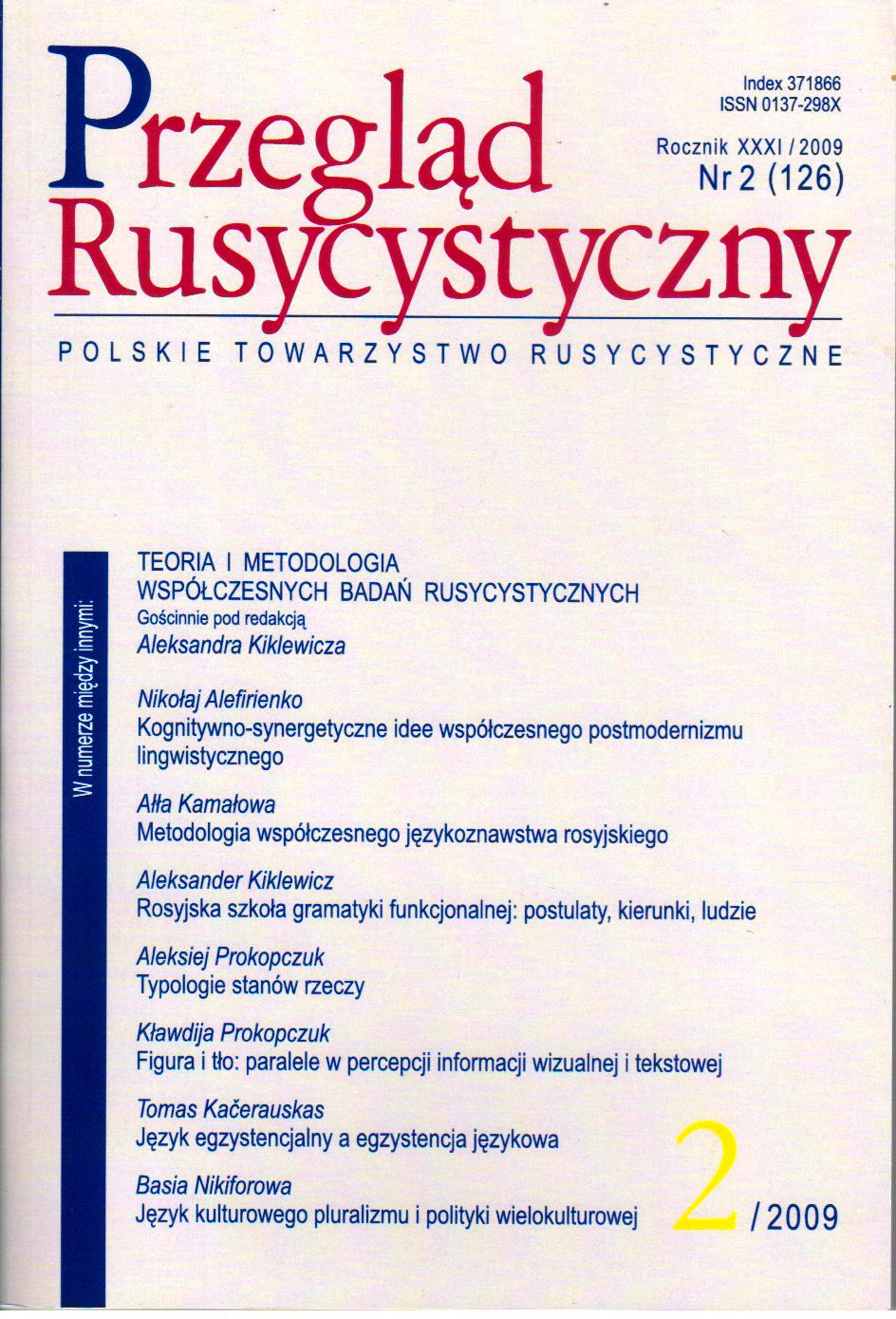Четыре песни о Москве
Four songs about Moscow
Author(s): Wasilij Georgievich SzczukinSubject(s): Language and Literature Studies, Literary Texts, Poetry, Studies of Literature, Philology
Published by: Polskie Towarzystwo Rusycytyczne
Keywords: Khrushchev Thaw; Brazhniev's stagnation; Moscow; songs; Russian poetry; NEP; traditional values
Summary/Abstract: The author of this paper makes an attempt to analyse and compare four songs about Moscow which were written in different periods of Soviet Russia. Namely: The Song of Old Coachman (1935), The Song about Moscow from They Met in Moscow (1941), Walking the Streets of Moscow from the film of the same title and Alexandra from Moscow Does not Believe in Tears (1979). The aim of this comparison was to determine the most significant style features that are: aesthetic preferences and poetry typical for epochs which left their stamp on each texts’ poetic form and intentionally directed world outlook, in other words the models of world representing as follows: the early years of victorious Stalinism, its apogee, Khrushchev Thaw and stagnation under Brezhnev. The first model (the first half of the 1930s) is described as semi-conformistic and semi-compromise. It is an attempt to reconcile the acts of human compassion from the period of the New Economic Policy (NEP) with the desire for comfort and other signs of sociological and technical advancement. The second model, created before the war, is pseudo-sacral one and at the same time extremaly utopian. It expresses narcotic socialist dream. For the third, Khrushchev Thaw model, the term neorealistic utopia applies perfectly. It is difficult yet at the same time harmonic attempt to combine mild utopian idealism with the apology of everyday life. Finally, the last, fourth world model representing mentality of the 70s sums up the whole soviet period. It is organic, a little bit fatalistic model which refers to objective rules of nature and traditional values.
Journal: Przegląd Rusycystyczny
- Issue Year: 2008
- Issue No: 122
- Page Range: 121-153
- Page Count: 33
- Language: Russian

